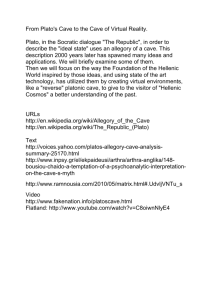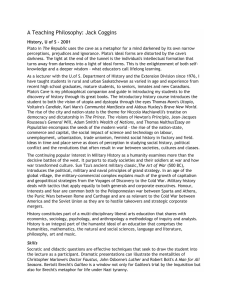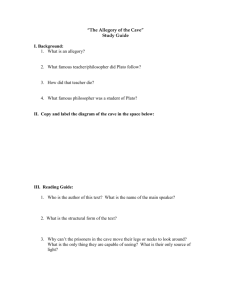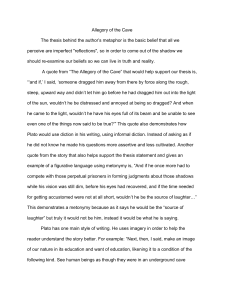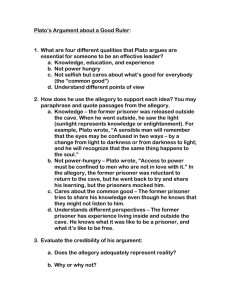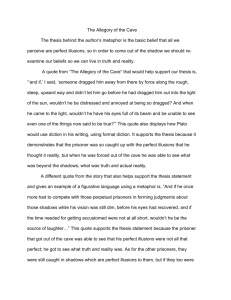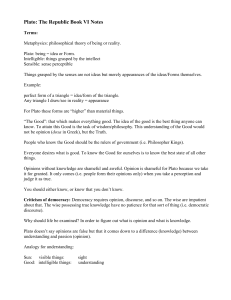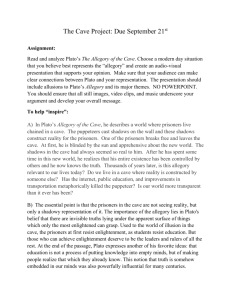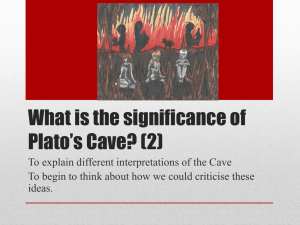Plato`s Allegory of the Cave
advertisement
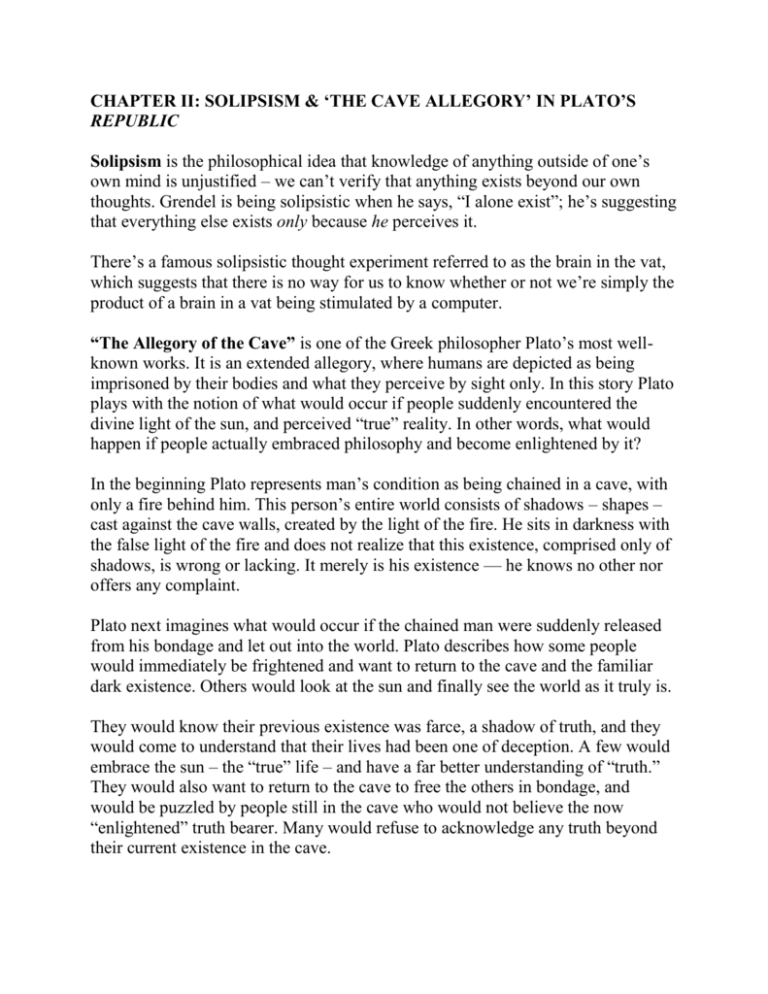
CHAPTER II: SOLIPSISM & ‘THE CAVE ALLEGORY’ IN PLATO’S REPUBLIC Solipsism is the philosophical idea that knowledge of anything outside of one’s own mind is unjustified – we can’t verify that anything exists beyond our own thoughts. Grendel is being solipsistic when he says, “I alone exist”; he’s suggesting that everything else exists only because he perceives it. There’s a famous solipsistic thought experiment referred to as the brain in the vat, which suggests that there is no way for us to know whether or not we’re simply the product of a brain in a vat being stimulated by a computer. “The Allegory of the Cave” is one of the Greek philosopher Plato’s most wellknown works. It is an extended allegory, where humans are depicted as being imprisoned by their bodies and what they perceive by sight only. In this story Plato plays with the notion of what would occur if people suddenly encountered the divine light of the sun, and perceived “true” reality. In other words, what would happen if people actually embraced philosophy and become enlightened by it? In the beginning Plato represents man’s condition as being chained in a cave, with only a fire behind him. This person’s entire world consists of shadows – shapes – cast against the cave walls, created by the light of the fire. He sits in darkness with the false light of the fire and does not realize that this existence, comprised only of shadows, is wrong or lacking. It merely is his existence — he knows no other nor offers any complaint. Plato next imagines what would occur if the chained man were suddenly released from his bondage and let out into the world. Plato describes how some people would immediately be frightened and want to return to the cave and the familiar dark existence. Others would look at the sun and finally see the world as it truly is. They would know their previous existence was farce, a shadow of truth, and they would come to understand that their lives had been one of deception. A few would embrace the sun – the “true” life – and have a far better understanding of “truth.” They would also want to return to the cave to free the others in bondage, and would be puzzled by people still in the cave who would not believe the now “enlightened” truth bearer. Many would refuse to acknowledge any truth beyond their current existence in the cave.
